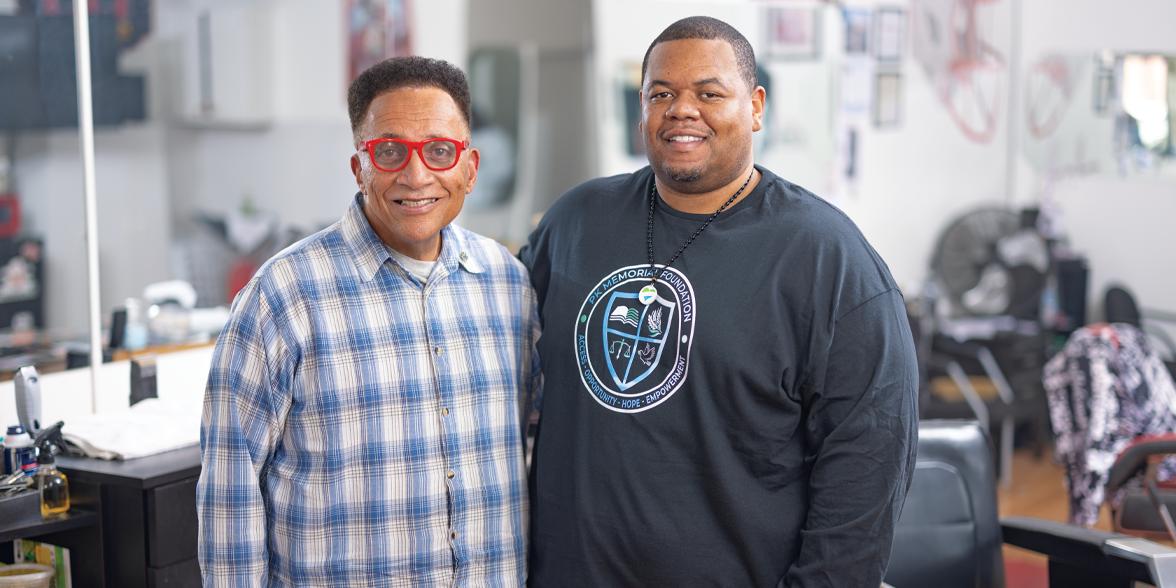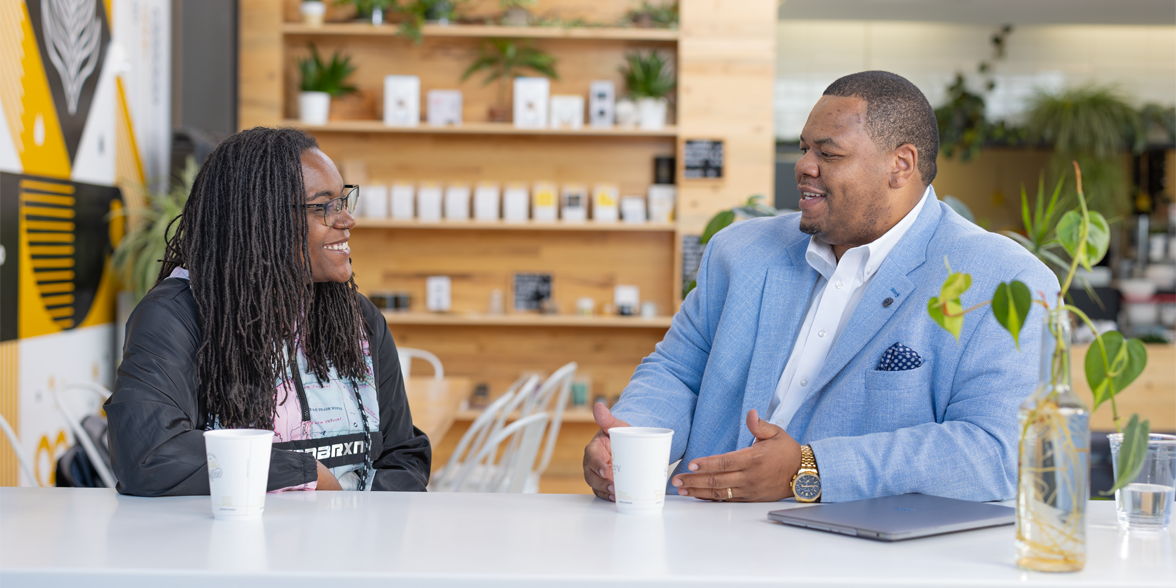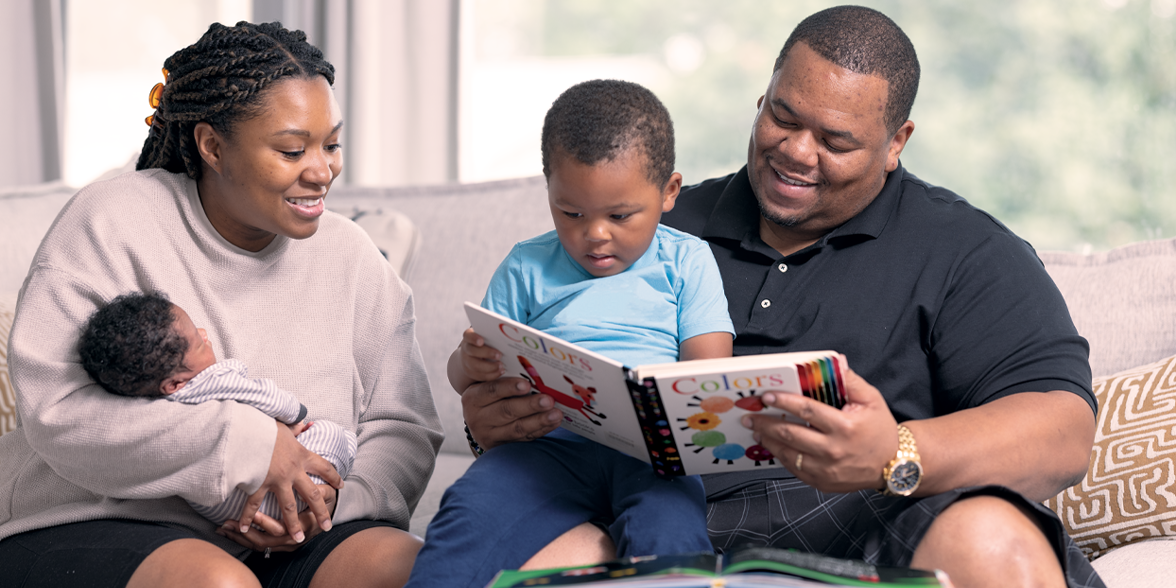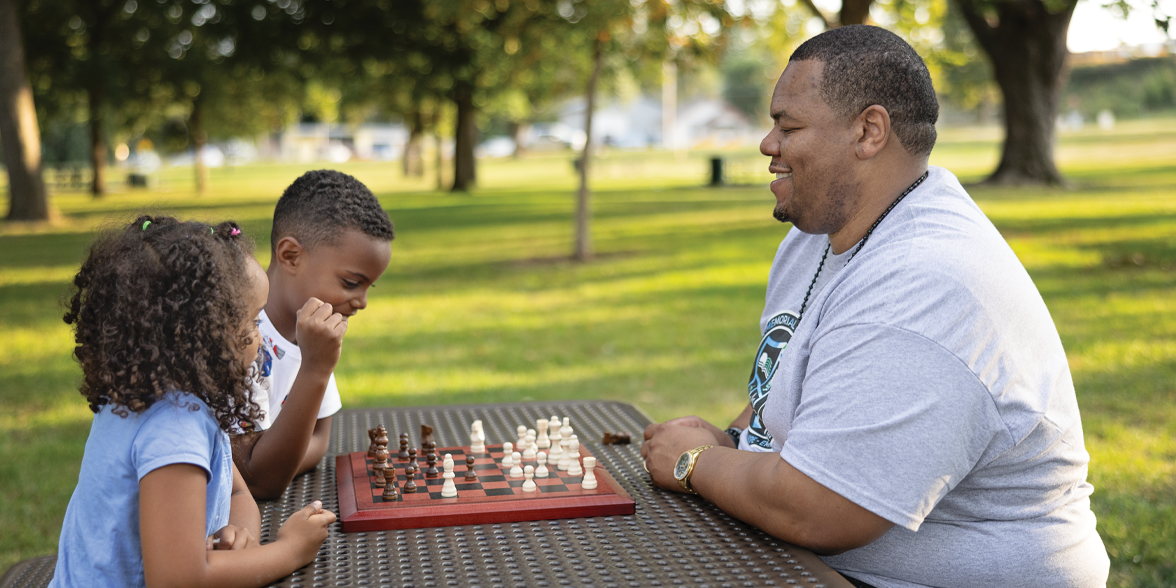
Gibril S. Mansaray



Gibril S. Mansaray
LIVE YOUR LEGACY, LEAVE A LEGACY
Gibril S. Mansaray is a man with deep roots. But growing up, he felt rootless. Born in Iowa, he moved to Minnesota with his family. Then to New Jersey. Then back to Iowa. “From kindergarten to eighth grade, I moved almost every year,” he said. “I was always the new kid.”
Looking back now, he can see how the constant movement forced him to hone his ability to unite people, spark connection and foster belonging. But at the time, it felt like a struggle. “I was always trying to help other people feel like they belonged,” he reflected. “And I couldn’t find it. I never quite fit.”
The son of a Western African Muslim father and Southern Baptist Christian mother, Gibril continued to feel like “a walking division” into early adulthood. Around age 20, as he read, he realized the more he learned, the more there was to learn. He went back to college, majoring in sociology. In 2018, he got a job in the child welfare field in Omaha, Nebraska, and discovered a mentoring organization for Black men focused on developing young people into future leaders.
“The membership intake person is actually now my mentor in the Amway business," Gibril recalled. In his mentor, Ed Stevens, Gibril found someone who could be the connector for him that he had so often sought to be for others. “When I met Ed,” he said, “I had someone who could pour into me and teach me how to have a greater impact – to help people not only be business owners but also legacy builders.” Just a year later, Gibril discovered he himself was heir to a legacy he’d never fully understood.
In 2019, Nebraska experienced historic flooding. Half a world away, the village where Gibril’s father was born, in Sierra Leone, experienced the same thing. Over 90% of the crops were lost. Gibril’s father asked Gibril to send $430 to help support the village, and looking around at the need in Nebraska, Gibril asked him for the first time what that money actually did. The answer changed his life. “My dad said that $430 fed approximately 1,500 people for a week,” Gibril said, a catch in his voice. “When I heard that, I said, ‘I have to do more.’”

“
To be a changemaker is to involve others and to inspire others, through that involvement, to be better.
Gibril S. Mansaray

“
To be a changemaker is to involve others and to inspire others, through that involvement, to be better.
Gibril S. Mansaray

“
To be a changemaker is to involve others and to inspire others, through that involvement, to be better.
Gibril S. Mansaray
He started asking about the needs of the village and found out that 40% of the primary school couldn’t be used six months out of the year due to roof leaks. So, Gibril put together a fundraiser and raised $3,400 to rebuild the entire school. He also launched a foundation, the Pa Karim Memorial Foundation – named for his grandfather – to help expand educational opportunities in Sierra Leone. In 2023, he traveled to the village for the first time and was forever changed.
“There were about 500 people there to greet me,” he said. “Just people lining the road to the village, a 20-minute walk.” When he stepped onto his family’s original lands, he took his shoes off, to the confusion of those around him. “They didn’t understand the symbolism,” he said, “because their tree has roots already. I told them, ‘You don’t understand. I come from a place where we’re taught to believe in so many things that don’t matter.’” In Sierra Leone, he realized his mentor had taught him to pursue true significance. “For me, it was the feeling of where purpose and significance intersect,” he said.
The motto of Pa Karim Memorial Foundation is “using education to empower generations,” and there is no question the school is doing that. Gibril’s trip was planned and facilitated by Justice A. Kamara, one of the school’s first students and current chief correspondent of the foundation. “Neither one of Justice’s parents was ever educated in a school,” said Gibril. “They can’t read and write. Just one generation after them, he graduated with honors from the second-largest university in the country. He now has a team of ambassadors that he pours into. He's leading community initiatives and inspiring hope.”
Now back in the U.S., Gibril is raising money to build a middle school and high school in the village. “Right now,” said Gibril, “the older kids, they leave, they drop out or they walk 14 miles a day to go to middle school. For under $40,000 each, we can build a middle school and high school. Seven villages of kids no longer have to leave.”
More than anything, he wants people to understand the opportunities they have to make a difference. “If you’re in the United States especially, and if you’re connected to Amway, you have a tremendous opportunity to make exponential change,” he said. “We can do anything if we do it together.”
By selecting cancel, the new IBO must complete the rest of the registration process, including payment. You will not be able to return to the payment option.
The new IBO will receive an email with a link to complete the process




